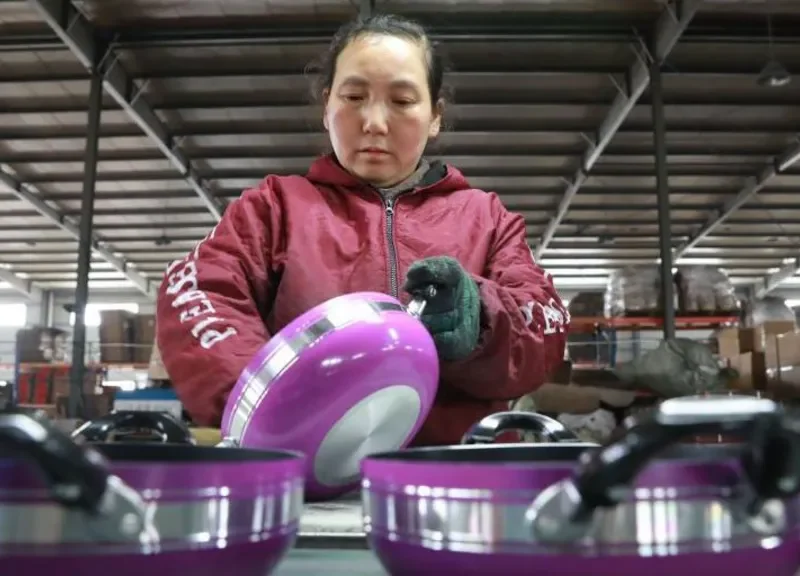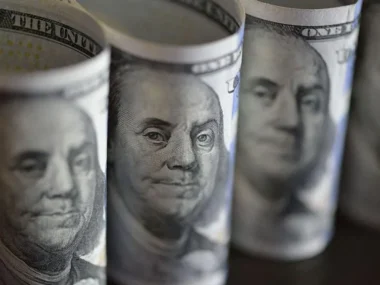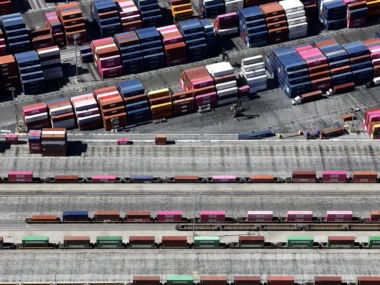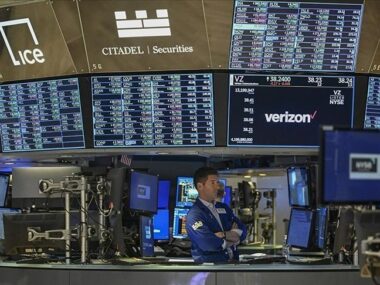Asian stock markets have declined after President Donald Trump indicated that his upcoming tariffs would impact all nations, not just those with the largest trade deficits with the U.S.
Trump made these remarks ahead of unveiling a broad set of import duties on Wednesday, which he has labeled “Liberation Day” for America.
These tariffs will add to existing levies on aluminum, steel, and vehicles, as well as higher duties on all Chinese imports.
“You’d start with all countries,” Trump told reporters aboard Air Force One, stating that the policy would apply broadly. However, he assured that his administration would implement the measures in a “far more generous” and “kinder” manner than other nations had treated the U.S.
With just 48 hours before the tariffs take effect, the UK remains in negotiations with the U.S. for an exemption.
Downing Street reported that Prime Minister Sir Keir Starmer had a “productive” phone call with Trump on Sunday, with discussions set to continue. Meanwhile, UK officials have signaled they are prepared to impose tariffs on the U.S. if necessary.
The European Union and Canada have also announced plans for retaliatory trade actions.
Kevin Hassett, director of the National Economic Council, told Fox Business that the tariffs would target 10 to 15 countries with the highest trade deficits, though he did not specify which ones.
Trump considers these trade taxes—ultimately paid by U.S. companies importing goods—as a way to shield the American economy from unfair competition and leverage better trade agreements.
Fears of a trade war are rattling global markets, increasing concerns over a potential U.S. recession. On Monday, Japan’s Nikkei 225 fell more than 4%, South Korea’s Kospi dropped 3%, and Australia’s ASX 200 declined by 1.7%. In Europe, the FTSE 100 opened 0.9% lower, while Germany’s Dax and France’s Cac 40 both fell 1%.
Over the weekend, Trump’s advisers reinforced his stance that these tariffs could generate significant revenue and boost job creation.
Trade adviser Pete Navarro estimated that tariffs on car imports alone could generate $100 billion annually, while the total tariffs could raise $600 billion—equivalent to 20% of total U.S. goods imports.
A White House report suggested that a 10% tariff on all imports could create nearly three million U.S. jobs.
However, concerns persist that tariffs may drive inflation, a key issue Trump previously pledged to reduce. If businesses pass higher costs to consumers, prices could rise, while absorbing the costs could shrink profits and potentially slow investment.
‘Counter-productive’
Will Butler-Adams, CEO of Brompton Bicycle, which manufactures folding bikes, stated that U.S. tariffs are causing uncertainty.
Although Brompton’s products are not currently subject to additional taxes, he noted that officials are assessing how much steel in imported goods originates outside the U.S., which could potentially lead to tariffs.
“The reality is, we don’t actually know, and even those handling imports at U.S. borders are unclear on how some of these tariffs will be implemented,” Butler-Adams explained.

Will Butler-Adams of Brompton Bicycle stated that tariffs could discourage the company from investing in the U.S.
Around 10% of Brompton’s sales come from the U.S., where the company has grown from a team of four to 40 and operates stores in New York and Washington.
However, Butler-Adams warned that tariffs could be “counter-productive.”
He explained, “Ironically, if tariffs are imposed, it will make our product less competitive.”
As a result, Brompton might reduce its investment in the U.S., or in the worst case, even consider pulling out entirely.
TikTok sale
In a separate development, Trump stated that a deal for TikTok’s Chinese owner, ByteDance, to sell the app would be finalized before the Saturday deadline.
In January, he set a 5 April deadline for the short video platform to secure a non-Chinese buyer or face a ban in the U.S. due to national security concerns.
The deadline had been scheduled to align with a law passed under the Biden administration.











